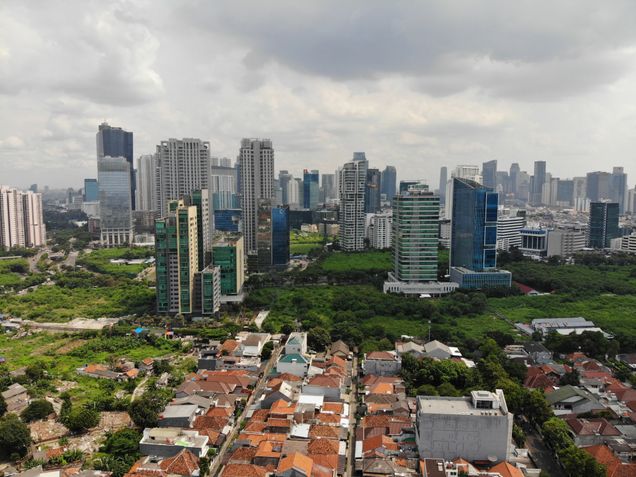Climate Transition Spillovers and Sovereign Risk: Evidence from Indonesia

In Southeast Asia, several countries are already exposed to socio-economic and financial losses induced by physical climate risk. Some Southeast Asian countries exposed to physical risk, such as Indonesia, are also leading producers and exporters of fossil fuels. This compounds the country’s climate impacts by exposing them transition risk, or a situation in which climate policies and regulations are introduced in a late and sudden way.
In a new journal article in Energy Economics, Régis Gourdel, Irene Monasterolo and Kevin P. Gallagher analyze the macro-financial relevance of spillover risk in Indonesia, providing a quantitative assessment of such impact on the country’s fiscal and financial stability. The authors model climate transition spillover risk as a demand shock on Indonesian fossil fuel production, driven by the decarbonization policies of other Asian countries, and based on scenarios from the Network for Greening the Financial System.
Critically, the paper provides an operative framework through which the International Monetary Fund (IMF) can trace the channels of spillover risk and provide quantitative assessments in their Financial Stability Assessment Programs (FSAPs).
Key findings:
- There is a trade-off between sovereign risk and decarbonization in Indonesia.
- Spillover risk negatively affects GDP growth and the main macroeconomic indicators in Indonesia, with -23 percent in GDP by the end of the simulation period, in comparison to the baseline scenario of current policies with no evolution in trade.
- Given the important role played by the mining sector in the Indonesian economy, the shock negatively affects the Indonesian balance of payments, fiscal budget and public debt, which increases by up to 12 percent of GDP, relative to its starting point.
- At the regional level, the coordinated introduction of policies for the low-carbon transition in the Southeast Asia region, and support from regional institutions, could help countries smooth the negative effects of the spillover risk in the economy and public finance.
- At the global level, the IMF may have a significant role to play, being the only global and membership-based institution charged with maintaining the stability of the financial system.
Ultimately, the results highlight the importance of including spillover risks in the climate financial risk monitoring and assessment programs of national and international supervisory authorities for better risk management and climate policy design.
This journal article was previously published as a technical paper from the Task Force on Climate, Development and the IMF in March 2022.
Read the Journal Article Read the Technical PaperRead the latest research from the Task Force on Climate, Development and the IMF. Never miss an update by subscribing to the Task Force Newsletter.
